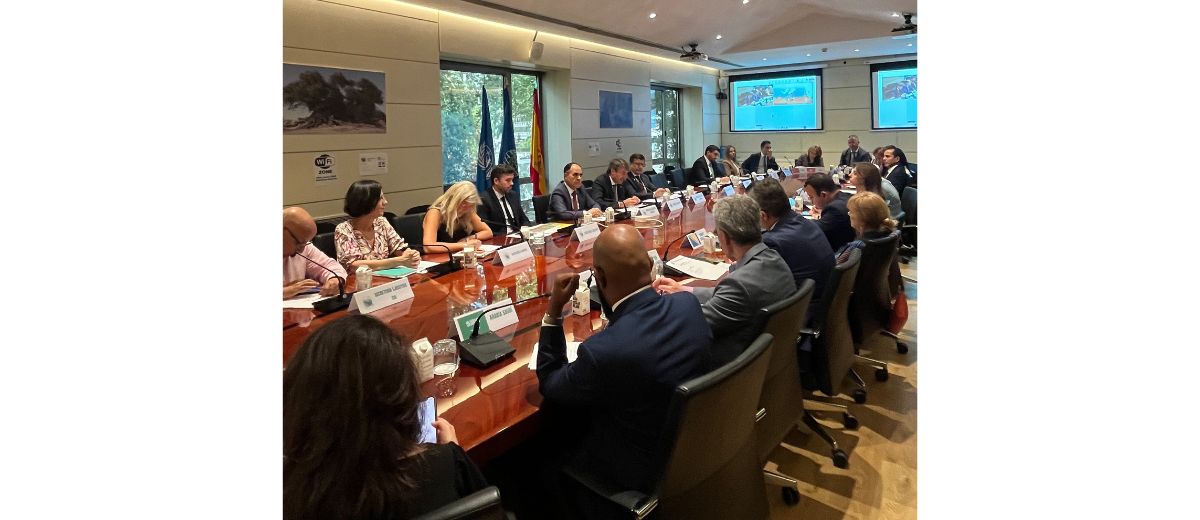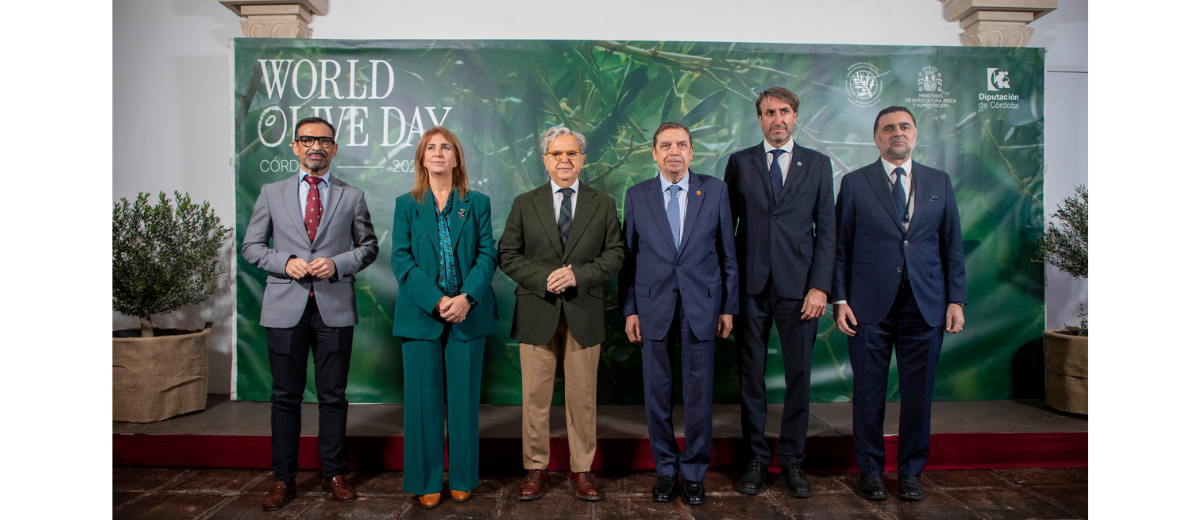The International Olive Council (IOC) welcomed on Thursday, 19 June ambassadors and senior representatives from member countries and observers (Albania, Saudi Arabia, Algeria, Azerbaijan, Argentina, Bosnia and Herzegovina, Egypt, Georgia, Jordan, Lebanon, Libya, Morocco, Montenegro, Palestine, Tunisia, Türkiye, Uzbekistan, Iraq, Brazil and Peru) for an informative session at its headquarters in Madrid. The event was an opportunity to inform them on the upcoming 121st session of the Council of Members which will be held in hybrid format on 8 July 2025.
Executive Director Jaime Lillo opened the session and briefed the participants on the upcoming plenary session and its preparatory committee meetings scheduled from 1 to 3 July, as well as giving some updates on the Council’s latest activities and strategic priorities. Key highlights included recent developments in standardisation and research, trade standards and new guidelines for sensory analysis; activities under the Technology and Environment Unit, such as the development of a carbon balance calculating tool for olive groves; and the IOC’s expanding promotion and training efforts in Brazil and other strategic markets.
Lillo gave the floor to Deputy Executive Director 1, Abderraouf Laajimi, to comment on the IOC’s intention to seek alternative sources of funding, and to Deputy Executive Director 2, Imdat Pekdemir, who referred to the amendments proposed by the members to the International Agreement and to other foundational texts of the Organisation.
The IOC also presented information about new communication strategy, aimed at modernising the Organisation’s public image and amplifying the visibility of member countries and their contributions to the olive sector. Participants were encouraged to engage with and help disseminate IOC initiatives through their respective national networks.
Before inviting participants to a tasting session of the award-winning oils from the Mario Solinas Quality Award, Lillo thanked the representatives of the embassies for their presence and interest, and took this opportunity to extend a special welcome to the representative of the Embassy of Iraq. Both parties expressed their satisfaction with Iraq’s intention to return to the IOC—an important milestone that reflects the growing international commitment to the Organisation’s standards and objectives.
This visit reaffirmed the importance of sustained collaboration between the IOC and its member states in advancing the quality, sustainability and global appreciation of olive products.









